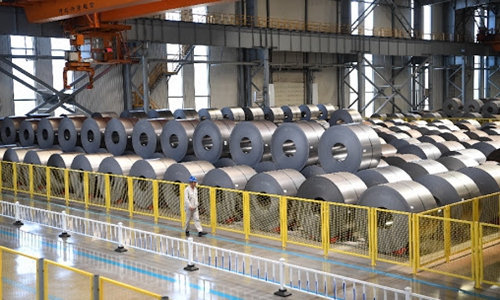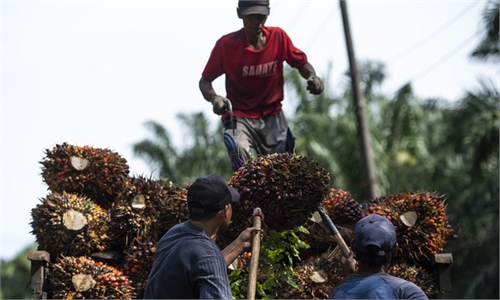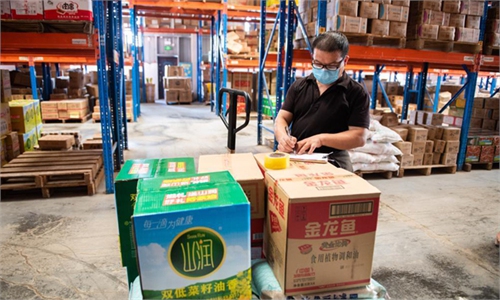Indonesia’s reported ban on primary aluminum ore exports has ‘puny’ impact on Chinese supply: expert

File Photo: Xinhua
Indonesia's reported ban on exports of bauxite, a primary input for aluminum, will have no real impact on the Chinese market, as producers have diversified their sources and strengthened the use of recycled aluminum, experts said.
Media reports said that Indonesian Minister of Investment and Head of the Investment Coordinating Board Bahlil Lahadalia recently said that the government would ban exports of bauxite this year to support the development of the downstream mining industry. The minister did not give an exact time for the ban to take effect.
The message captured the attention of the industry due to the potential disruption of China's aluminum supply, especially for some downstream industries such as electric vehicles and photovoltaic components, which require stable supplies of aluminum.
However, experts said that there is no need to be overly concerned, since imports from Indonesia are replaceable and other countries can fill the gap.
In 2021, China imported 107 million tons of aluminum ore, with 51 percent coming from Guinea, 32 percent from Australia and Indonesia third at 17 percent, according to the General Administration of Customs of China.
Such export bans have been repeatedly used by the Indonesian government, with the first taking effect in 2014 before it was lifted in 2017.
That ban was unexpected and had a huge impact on China, because Indonesia at that time was China's largest bauxite supplier, providing more than 60 percent of total imports, Huo Yunbo, an analyst at metal consultancy Antaike, told the Global Times on Tuesday.
"The situation has changed, since China has gradually diversified its sources to other areas, mainly Guinea, which now provides about half of China's total bauxite imports," said Huo.
Even if Indonesia bans exports, China's bauxite mine in Guinea can fully make up the gap, Huo noted.
In the short term, bauxite prices, including for downstream companies, will fluctuate to a limited extent, the expert said.
China is the world's largest alumina producer, accounting for half of global output. But with relatively poor bauxite resources, it has to import about 32.3 percent of the world's bauxite output every year.
In order to reduce its heavy dependence on imports while striving to meet carbon reduction targets, China is also increasing the production of secondary aluminum, recycled from various sources, with clear targets being set.
By 2025, the output of secondary aluminum in China will reach 11.5 million tons, a huge rise compared with 7.4 million tons in 2020, the National Development and Reform Commission said in the requirements of the circular economy's development for the 14th Five-Year Plan (2021-25) issued in July 2021.
During the 13th Five-Year Plan (2016-20), China's secondary aluminum accounted for 20 percent of total aluminum production, and there is still considerable room for growth compared with the global average of up to 30 percent, experts said.


